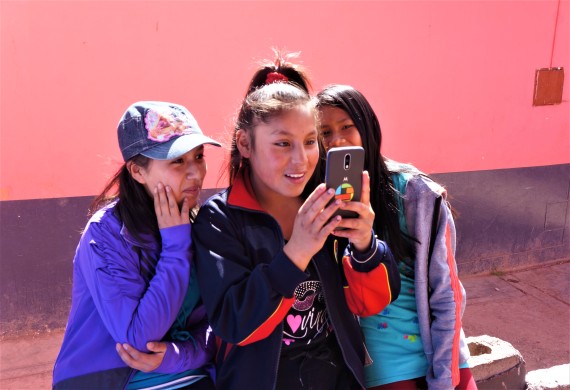
The Reliance Foundation and USAID invite grant applications for 'WomenConnect'
By: WE Staff | Thursday, 13 October 2022
Reliance Foundation and the US Agency for International Development (USAID) announced the beginning of the second phase of the "WomenConnect Challenge" India, expanding on their work to close the gender digital divide and empower women in India.
According to a joint statement from Reliance Foundation and USAID, under this initiative, Reliance Foundation will offer funds totaling up to Rs 10 crore for up to 10 organisations (up to Rs 1 crore for each grantee) to implement innovative solutions over 12–15 months.
The WomenConnect Challenge is an international call for ideas that will significantly alter how women access and utilise technology in order to increase their engagement in daily life. The WomenConnect Challenge India seeks to find and fund initiatives that close India's gender digital divide.
Ten grantee organisations who are implementing solutions in 17 Indian states were chosen for Round One of WCC India in August 2021. The first round's activities will have benefited more over 3 lakh women and girls, the two organisations said in the statement.
WCC India will accept Round Two applications from qualified organisations till 11.59 p.m. IST on November 14, 2022.
Nita Ambani, founder and chairperson of the Reliance Foundation, emphasised the significance of women having access to digital technology in their empowerment path. She said, "We have witnessed how digital technologies can empower women and increase the positive ripple impact of their change. We are intensifying our efforts to close the gender digital gap with the second phase of the WomenConnect Challenge India, in conjunction with USAID, after being encouraged by the results of the first round of the challenge. By 2026, there will be one billion smartphone users in India, making it crucial that women's access expands proportionally. When women advance, families, communities, and even countries prosper.
USAID Mission Director in India, Veena Reddy, said, “Investing in women and girls is essential to transforming communities and nations. This collaboration will support new pathways for women and girls in India to engage with technology, counter outdated social norms, and increase their economic independence.”
Grantees of WomenConnect Challenge (WCC) India Round One have concentrated on numerous pathways for women's empowerment, from classrooms in rural Bihar that are bringing women and girls into the digital fold to digitally integrating women dairy farmers in Uttar Pradesh into formal supply chains. Developing entrepreneurial skills, digital literacy, entertainment-based learning opportunities, mentoring, and support for value-chain linkages in agriculture are a few of these.
In India, the percentage of women who own and use a cell phone rose from 45.9 to 54 percent over the past four years. However, the gender digital divide's major indicators—differences in access to mobile devices and the internet between men and women—remain substantial and must be closed in order to achieve development objectives.
Reliance Foundation and USAID will keep fostering solutions that significantly increase women's access to digital technologies in order to close this gap and create a more inclusive and equitable future. The WomenConnect Community of Practice will continue to receive assistance from USAID's South Asia Regional Digital Initiative (SARDI), which will also assist in bringing lessons learned from earlier rounds, including those from other nations.
Initiatives by the Reliance Foundation to empower women focus on developing leadership abilities, digital literacy, job and skill development, strengthening women's health, and expanding their chances in the arts, sports, and academics. By connecting the disconnected through Jio, Reliance is revolutionising digital access in India.
A recent publication by the Reliance Foundation and the Observer Research Foundation, Aspirations, Access & Agency: Women Transforming Lives with Technology, highlights the experiences of women who are changing their communities through the use of digital technologies and exemplifies the enormous potential that can be unlocked by bridging the gender digital divide.


.jpg)



